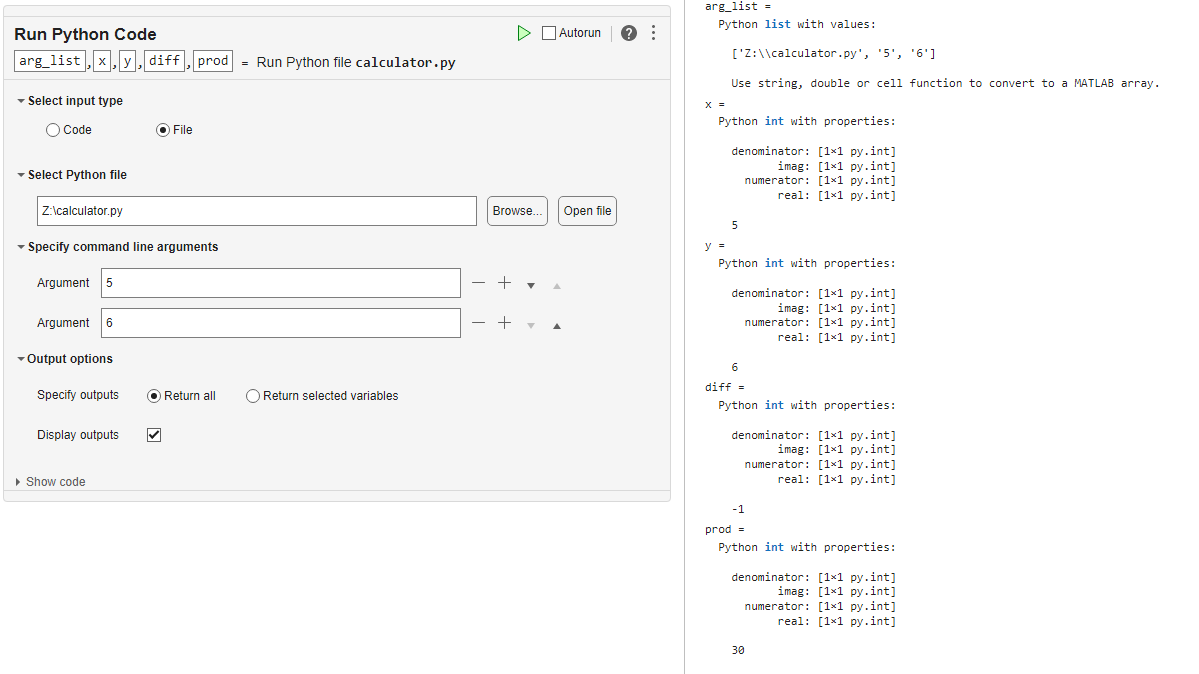运行 Python 代码
说明
运行 Python 代码任务允许您以交互方式运行 Python® 代码或文件。该任务会自动为您的实时脚本生成 MATLAB® 代码。有关常用的实时编辑器任务的详细信息,请参阅将交互式任务添加到实时脚本中。
使用此任务,您可以:
编写并执行 Python 代码。
执行 Python 文件中的代码。
将 Python 变量返回到 MATLAB 工作区。
将 MATLAB 数据传递给 Python 代码。
指定命令行参量。
打开任务
要将运行 Python 代码任务添加到 MATLAB 编辑器中的实时脚本,请执行以下操作:
在实时编辑器选项卡上,选择任务 > 运行 Python 代码。
在脚本的代码块中,键入相关关键字,例如
Python或run。从建议的命令自动填充项中选择Run Python Code。
参数
限制
对于使用
pyrun或pyrunfile定义的 Python 类,如果将类的实例返回到 MATLAB,将无法修改这些类。如果需要更改类定义,请重新启动解释器会话:terminate(pyenv) pyenv(ExecutionMode="OutOfProcess")
或者,重新启动 MATLAB 以使用
"InProcess"模式。有些局部变量要由其他局部变量通过某种方法来初始化,
pyrun和pyrunfile函数不支持具有这种局部变量的类。对于这种用法,请创建一个模块并使用py.前缀访问它。pyrun、pyrunfile或提供原生 Python 代码作为输入的运行 Python 代码任务不支持基于 Python 类型提示的类型转换。
版本历史记录
在 R2024a 中推出



